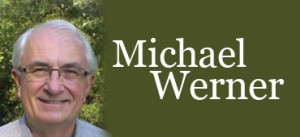Hope

A YOUNG WOMAN in a self-management and recovery training (SMART) meeting I coordinate asked me how anything could go right for her when she had so many debts, destroyed relationships, little hope for employment, little human support in her life, and an alcohol problem. In the past, when asked similar questions by others, I stumbled in responding. But after witnessing incredible turnarounds over the years, I know there is indeed hope for that young woman and I spoke honestly about her potential to have a good life.
I came home afterward to see on television and read on the Internet one cynical, skeptical voice after another spell doom for our society, our country, and the planet. This election has brought to the surface the anger of millions of Americans who have seen globalization limiting their opportunities, the dream of upward mobility vanish, racism brought to the fore, and an underclass and even a middle class left behind. They see an unresponsive government dominated by special interests, and they are left powerless, fearful, disengaged, and insecure about the future. Many see little hope.
Philosophers generally have had little to say about hope, but the French Catholic existentialist Gabriel Marcel says to have hope in some specific outcome immediately brings about “bad faith” and argues for a less directed form of hope. I agree to a certain extent, but there is an authentic hope that emerges from both a realistic assessment of the situation and from passionately embracing our overall life commitments.
People lacking hope withdraw into various marginalized groups. In Between the World and Me, Ta-Nehisi Coates documents the cultural breakdown of the underclass in the African-American community, and J. D. Vance documents a similar breakdown of the white underclass in his book, Hillbilly Elegy. Many of us, including humanists, retreat bitterly and resentfully to the safety of our personal tribe when our cultural capital withers. Everyone else becomes “the other.” What has been lost is a faith in each other; a loss of sympathy for each other. Most importantly, a deep skepticism has jaundiced our views of our social institutions. Some have even blamed this on the unrestrained use of Enlightenment critical reasoning.
Recently I was reading early humanist literature and was struck how ahistorical and negative we are today. Our period is not unique in dealing with difficult challenges. Having emerged from the horrors of WWII and in the midst of the Cold War, in 1949 humanist pioneer A. Eustace Haydon said,
Man is only at the dawn of history as an intelligent builder of culture. Hope for tomorrow will burn with a brighter flame when men, aware of the meaning in man’s adventure, turn from perfect worlds to take up the more practical task of planning a world in which all men in all lands may have a chance for full joy in living.
Sometimes we forget that we are in this together. We forget that we have moral duties and responsibilities to one another to make a better world. We forget that none of us is as smart as all of us. We who are fortunate forget that we wouldn’t be who we are, have what we have, and enjoy much of what makes us happy if not for a society that has nurtured us—and that others may not be so lucky. We forget that we have great potential for good or evil that is covered over by a thin veneer of civilization and that this fragile layer constantly needs to be renewed. We forget that government is us, is our collective voice, and that if it’s been usurped by other forces it’s our responsibility to take it back, with education being the primary tool. We forget that wallowing in antigovernment ideological rhetoric, despite having a degree of factual basis, is the easy, callous, selfish path. While all of us can point to problems in our culture, institutions, society, and government, abandoning hope for them and vilifying them is like cutting off an arm that has been injured.
“Man’s task is to shape the natural world into a home and to weave the web of social relations so that every person might know all that life can give of joy and beauty,” Haydon said. “Man suffers but he never surrenders. The torch falls from faltering hands but never goes out. Generation after generation it is handed down and carried forward against evil, chaos and the dark.”
We easily get distracted by the myriad challenges before us and lose hope. But let us never forget our overall duty to keep the flame of civilization alive and to bring about a culture that strives for everyone to live life fully and abundantly.
